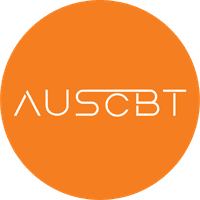
This role has a high level of AI exposure. While some human skills are required, many tasks could be automated or replaced by new technology.
Explore all careersAn Integration Analyst ensures IT systems operate efficiently, overseeing the design, installation, and integration of new technologies.
Get qualified to work as an Integration Analyst with a course recognised across Australia. Speak to a training provider to learn more.










In Australia, a full time Integration Analyst generally earns $2,276 per week ($118,352 annual salary) before tax. This is a median figure for full-time employees and should be considered a guide only. As you gain more experience you can expect a potentially higher salary than people who are new to the industry.
 Courses.com.au Team
Courses.com.au Team
There has been an increase in the number of people employed in this field over the last five years. There are currently 153,700 people working in this industry in Australia and many of them specialise as an Integration Analyst. Integration Analysts may find work across all regions of Australia, particularly larger towns and cities.
Source: Australian Government Labour Market Insights
 Courses.com.au Team
Courses.com.au Team
A Bachelor of Information Technology is an ideal qualification if you’re planning a career as an Integration Analyst. This course will give you the skills to take on roles that require you to manage IT systems, networks, hardware and web applications. You’ll cover topics such as coding, user-centric design, systems configuration and modelling.
 Courses.com.au Team
Courses.com.au Team
Browse occupations related to Integration Analyst



If you're looking to advance your career in technology, exploring Integration Analyst courses in Hobart is a great place to start. With a selection of advanced qualifications such as the Advanced Diploma of Information Technology ICT60220 and the Bachelor of Information and Communication Technology, you can equip yourself with the necessary skills to excel in this dynamic field. Both courses offer a comprehensive curriculum designed for experienced learners, ensuring you are well-prepared for a successful career in integration analysis.
Training providers such as TasCollege and the University of Tasmania play a pivotal role in delivering these exceptional courses in Hobart. Their expertise not only enhances your learning experience but also connects you with a network of professionals in the industry. As you progress in your studies, you may find yourself drawn to various related job roles including Systems Analyst, Enterprise Solutions Architect, and ICT Architect, among others.
In addition to the technical expertise you will gain from these Integration Analyst courses in Hobart, it's also essential to recognise the broader field of study linked to this role. You can explore courses in Information Technology and System Analysis to broaden your skillset. The exciting possibilities await you in roles such as IT Project Manager, Systems Architect, and Solutions Designer. Get started on your journey today and unlock various pathways to success in the tech industry!